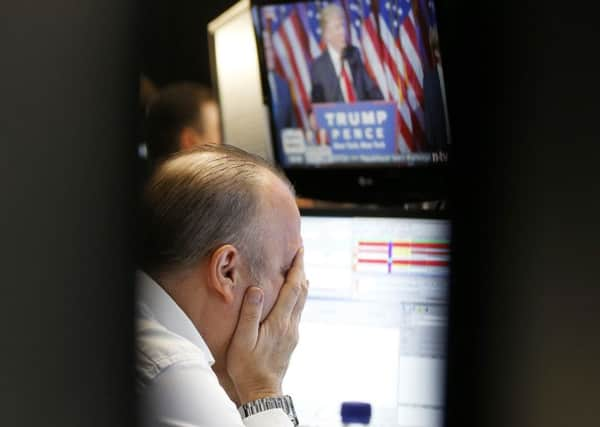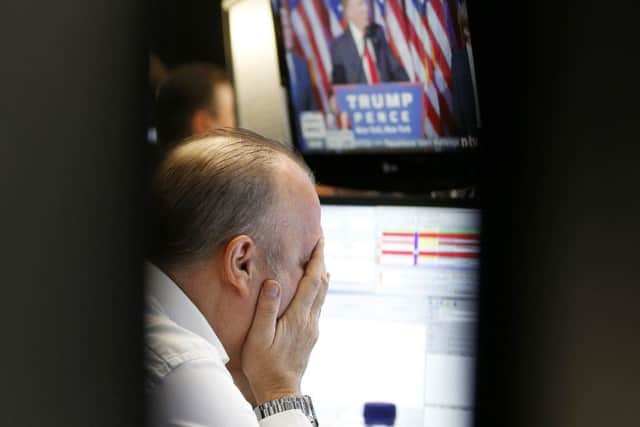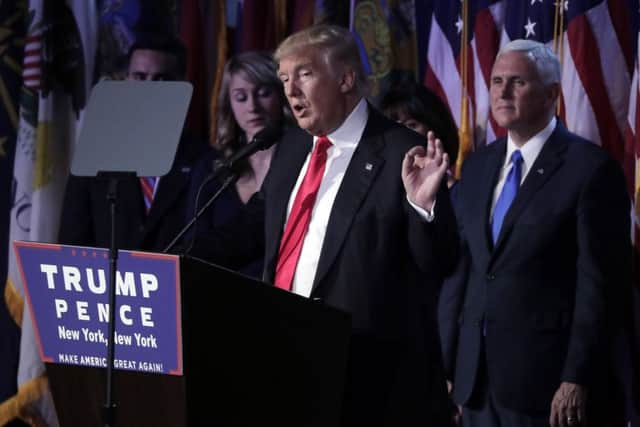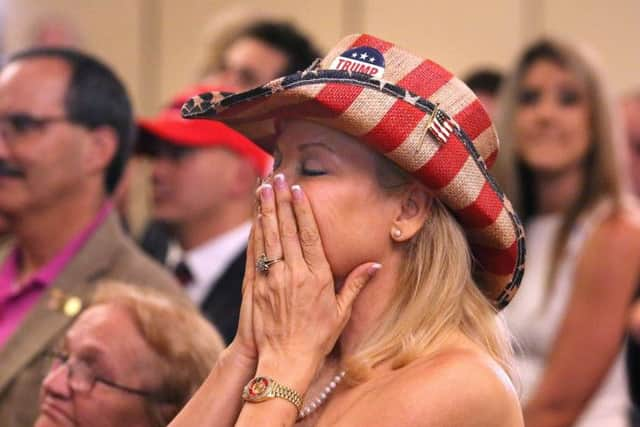30 years ago we scoffed at Reagan - could President Trump be just as successful?


Reagan was largely written off as a B-movie star - yet he went on to become one of the most popular presidents of the 20th Century, and a valuable ally to Margaret Thatcher’s Britain.
Reagan, unlike President-elect Trump, was a Washington insider when he was elected in 1980, and had served successfully as Governor of California.
Advertisement
Hide AdAdvertisement
Hide AdTrump, however, has been driven by rhetoric, promising to “make America great again” but providing little detail.
Professor Scott Lucas, a US citizen who teaches American Studies at the University of Birmingham, said a Trump presidency has the potential to be “very dangerous, not only for America but for America’s relations around the world”.
“He is probably the most unqualified person I have seen to be president,” he said.
“We know he is divisive, we know he is aggressive and we have to deal with an unprecedented situation.


Advertisement
Hide AdAdvertisement
Hide Ad“My hope is that 240 years ago the US created a series of checks and balances for this kind of situation and they will work.”
Ian Shepherdson, chief economist at Pantheon Macroeconomics, said it was “entirely possible” that the US economy may enter into recession in the first quarter of 2017 as the shockwaves rocking global markets translate into a consumer confidence crisis.
“A US recession is never good for the UK economy. Next year we will be under pressure from rising inflation and it is another reason to be less optimistic,” he said.
But Trump’s ability to change the status quo may be more limited than he believes...


Limited powers
Advertisement
Hide AdAdvertisement
Hide AdThat’s because although presidential powers have been expanding, if elected, Trump, like those before him, will encounter many limitations in bringing about change. He will be able to make treaties (official agreements with other nations), but only if two-thirds of senators agree.
This is according to Article II of the US Constitution, which sets out presidential powers. However he would be able to make executive agreements with foreign governments without congress weighing in.
He could break international agreements such as the Iran nuclear deal and the Paris climate accords, and he would have control over the US nuclear arsenal. There could be one hell of a stink from Congress though, and if there wasn’t public support for his policies, and if there is enough of an outcry, they may still not happen.


Trump can’t make laws – these have to be agreed in the House of Representatives and the Senate – but he can veto bills. Ultimately this can be overridden by Congress. He can’t raise or lower taxes without Congressional approval.
Advertisement
Hide AdAdvertisement
Hide AdHe has to fund things according to what Congress has approved. So if things need funding, he’s going to have to convince Congress.
What would he bring to the table?
Laws and bills aside, there’s plenty Trump could bring to the Oval Office desk that voters find appealing. He wants to hold Washington to account – his whole campaign has been riding the anti-Establishment wave.
This is attractive to voters because they believe a rich businessman will be impervious to corruption.
Thomas Leeper, an assistant professor in Political Behaviour at LSE, has previously told our sister paper i: “He is able to work on that [anti-Establishment] theme effectively because he can claim that he is a very successful businessman and therefore bring skills and experience that are useful potentially in changing Washington.”


Business
Advertisement
Hide AdAdvertisement
Hide AdTo those in Trump’s inner circle, business and the classic skills associated with being in the industry are his strengths.
His adviser Anthony Scaramucci recently told the BBC Radio 4 Today programme that after the media has gone “bonkers crazy” over Trump’s election win, “they’re going to find… he’s a deal maker, negotiator”.
“He’ll bring a magnanimous side to his personality out that will shock everybody.”
Surrounded by ‘the right people’
High on Trump’s agenda will be to “cut a deal” with the Democrats and discuss with international allies how they can have a better relationship, says Scaramucci, adding: “This is a very, very good man and this is a guy that can run the country because he’ll surround himself with the right people.”
Advertisement
Hide AdAdvertisement
Hide AdOne international ally keeping a close eye on the race for the White House is the largest foreign investor in the US: the UK.
Naturally the UK has a vested interest in keeping the “economic special relationship” between both of the countries alive and John Dickerman, the CBI head of the US, says the industry finds both Trump and Clinton’s commitment to “building on, and developing, this unique political and trading partnership” encouraging.
Running a business and running a superpower are two different things. However, one would hope that Trump’s grand claims about his business empire – some of which have been contested – mean he is a man who understands the economy.
His vision to create a “dynamic booming economy that will create 25 million new jobs over the next decade” should be welcomed if it’s deliverable.
International relations
Advertisement
Hide AdAdvertisement
Hide AdUS presidents tend to have more control over foreign policy than domestic policy. And Trump plans to apply his business skills to international relations by taking a more transactional approach.
He wants to make sure the US benefits from its international alliances. This attitude is most summed up by his frustrations over the military alliance Nato – a Cold War-era agreement between nations to help one another if one comes under attack – saying the US cannot afford to pay for countries in Europe without compensation.
But Trump is not the only one to vent about Nato. The alliance requires members to spend two per cent GDP on defence and in March, outgoing US President Barack Obama called on the then UK Prime Minister David Cameron to ensure the UK paid “its fair share” on defence.
Trump has suggested he will rethink the US’s relationship with Nato, which has been worrying for some including Clinton, who said pulling out could make America less safe. But Labour’s former Defence Secretary Geoff Hoon suggests it’s all talk.
Advertisement
Hide AdAdvertisement
Hide Ad“I don’t think that Trump will necessarily cut off ties with Nato. The rhetoric of a candidate is not necessarily carried through to the Oval Office.”
Turn up for the books
“What a candidate is like as a candidate is not a reliable guide to what they are like as a US president,” says Hoon. He cites Ronald Reagan who was viewed critically before being regarded as one of the great presidents.
Michael Cullinane, a reader in US History at Northumbria University, shares the widespread scepticism over whether Trump will make a successful president.
“The only way Trump could make a success of his presidency is by entirely remaking his images, softening his rhetoric, seeking compromise and bi-partisanship, and finding a way to stay on message,” he told i.
Advertisement
Hide AdAdvertisement
Hide Ad“If Trump was less Trump, and managed to find a way of harnessing his populist appeal in a socially responsible way, he could surprise those Americans that refuse to vote for him,” he adds.
The 2016 US election campaign has been a turn up for the books. It has been dogged with insults, threats, sexism, sexual assault allegations, deliveries of mysterious white powder, unlikely allies, likely allies, walls, u-turns, pussy-bow blouses, vote-rigging allegations, video tape leaks, email leaks and FBI investigations. We never thought this would happen on the campaign trail. And we don’t know what Trump will be like in the White House.